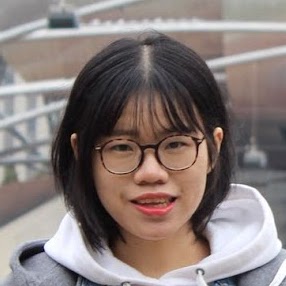The 5th ACM SIGSPATIAL International Workshop on AI for Geographic Knowledge Discovery
News
- (10/18/2022) Workshop program is available.
- (9/26/2022) Updated the dates for acceptance notifications and camera-ready.
- (8/22/2022) The paper submission deadline has been extended to August 29, 2022!
- (8/5/2022) Submitting your paper here.
- (7/11/2022) Key dates updated. Submit your paper by August 22, 2022!
- (5/19/2022) Launched workshop webpage.
Mission
Emerging advances from artificial intelligence, hardware accelerators and data processing architectures continue to reach the geospatial information sciences, with a transformative impact in many societal challenges. Recent breakthroughs in deep learning have brought forward an automated capability to learn hierarchical representational features from massive and complex data, including text, images, and videos. In tandem, rapid innovations in sensing technologies are supporting the collection of geospatial data in even higher resolution and throughput, supporting the observation, mapping, and analysis of different events/phenomena over the earth’s surface with unprecedented detail. Combined, these developments are offering potential for breakthroughs in geographic knowledge discovery, impacting decision making in areas such as humanitarian mapping, intelligent transport systems, urban expansion analysis, health data analysis and epidemiology, the study of climate change, handling natural disasters, and the general monitoring of the earth’s surface.
Topics
Example topics include but are not limited to:
- Data integrity, bias and privacy in Earth Sciences;
- Emerging challenges and opportunities with deep fake geography;
- GIScience with artificial intelligence for earth sciences and sustainability;
- Geospatial artificial intelligence applications in public health and agricultural domains;
- Spatial representation learning and deep neural networks for spatio-temporal data;
- Domain knowledge guided methods for spatiotemporal learning and challenges;
- Methods and tools for location intelligence applications;
- Social network data analytics and geographic knowledge graphs;
- Urban growth prediction and planning with machine learning methods;
- Self-supervised and unsupervised deep learning methods spatial and spatio-temporal data;
- Deep learning methods for disaster response and humanitarian applications;
- Human in the loop methods for enhancing integrity in GeoAI applications;
- Tools and methods for (explainable) XGeoAI;
- Learning with multimodal fusion of geographic attributed datasets;
- GeoAI methods for mobility and traffic data analytics;
- GeoAI cyberinfrastructure for Earth sciences;
Workshop Chairs

Bruno Martins
University of Lisbon
Dalton Lunga
Oak Ridge National Laboratory
Song Gao
University of Wisconsin Madison
Shawn Newsam
University of California, Merced
Lexie Yang
Oak Ridge National Laboratory
Xueqing Deng
ByteDance
Gengchen Mai
University of GeorgiaSubmission Details
Paper submission: August 22, 2022. Updated! August 29, 2022
Acceptance decision: September 23, 2022. Updated! October 3, 2022
Camera ready version: October 3, 2022. Updated! October 10, 2022
Workshop date: November 1, 2022
Format
This is a one-day workshop, which includes two keynotes (one for the morning and one for the afternoon respectively) and individual presentations. A paper competition will also be organized for the presented papers. Three submission types will be included in this workshop:
- Full research paper: 8-10 pages
- Short research paper or industry demo paper: 4 pages
- Vision or statement paper: 2 pages
Full research papers should present mature research on a specific problem or topic in the context of AI for geospatial challenges. We also welcome short research articles or industry demonstrations of existing or developing methods, toolkits, and best practices for AI applications in the geospatial domain. A vision for future directions or an overview statement on gaps and challenges for the development of AI technology and their applications in the geospatial domain are also welcome.
Manuscripts should be submitted in PDF format and formatted using the ACM camera-ready templates available at http://www.acm.org/publications/proceedings-template. All submitted papers will be peer reviewed to ensure the quality and the clarity of the presented research work. Submissions will be single-blind — i.e., the names affiliations of the authors should be listed in the submitted version.
Program Committee
| Hao Li | Heidelberg University |
| Kuldeep Kurte | Oak Ridge National Laboratory |
| Claudio Persello | University of Twente |
| Booma Sowkarthiga Balasubramani | University of Illinois at Chicago |
| Yiqun Xie | University of Minnesota |
| Bo Peng | PAII Inc. |
| Xiao Huang | University of Arkansas Fayetteville |
| Di Zhu | University of Minnesota, Twin Cities |
| Yao-Yi Chiang | University of Minnesota |
| Lei Zou | Texas A&M University |
| Martin Werner | Technical University of Munich |
| Dengfeng Chai | Zhejiang University |
| Yanhua Li | Worcester Polytechnic Institute (WPI) |
| Xiaojiang Li | Temple University |
| Weiwei Sun | University of British Columbia |
| Diego Marcos | Wageningen University |
| Yutong He | Carnegie Mellon University |